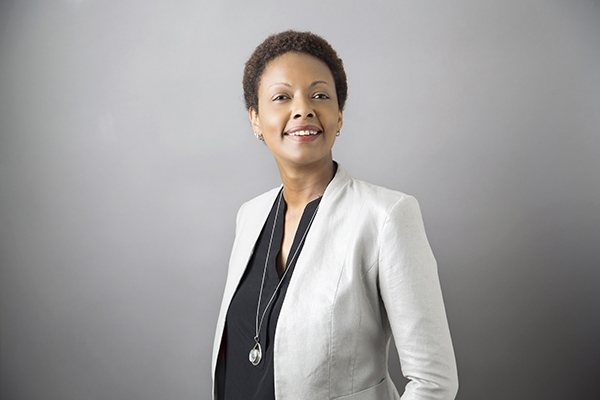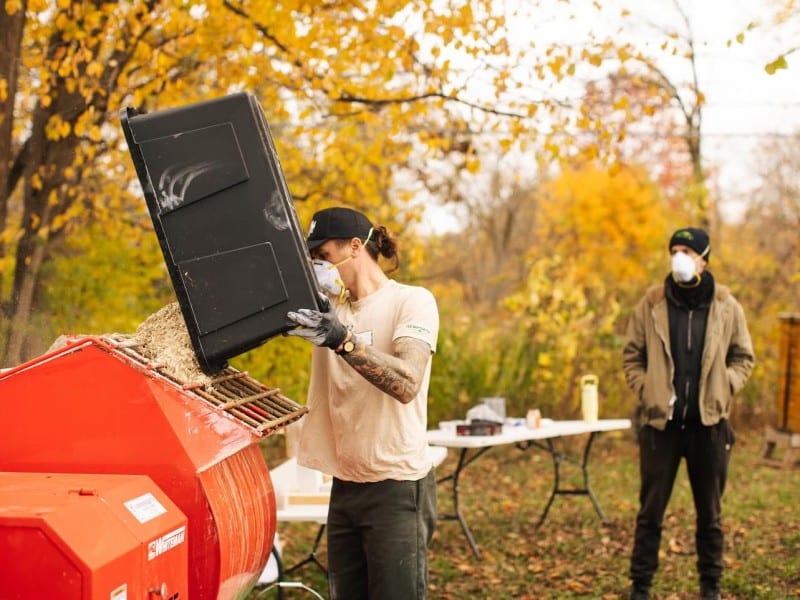Opinion: Detroit needs to preserve the cultural integrity of its black neighborhoods
In areas where development has been the greatest, many black people have found themselves "pushed to the margins." That's why, argues Lauren Hood, Detroit needs more neighborhoods where those shaping the vision are black.

“There were brothers playing motherf***in’ African drums in Mount Morris Park for 40 years and now they can’t do it anymore because the new inhabitants said the drums are loud. My father’s a great jazz musician. He bought a house in nineteen-motherf***in sixty-eight, and the motherf***in’ people moved in last year and called the cops on my father … We bought the motherf***in’ house in nineteen-sixty-motherf***in’-eight and now you call the cops? In 2013?”
The above rant is an excerpt from a Spike Lee address to an audience at New York’s Pratt Institute. It succinctly describes, in my mind, the true nature of displacement. It’s not always about the physical. It’s entirely possible to be present and still feel, in a place that you could once claim as your own, completely disregarded and unwelcomed.
Historically, Detroit has been a Black city. The city is still predominantly black. Blacker than most cities. The blackest actually. In cities with populations over 100,000, Detroit has the most black people relative to its overall population—about 84 percent.
But from watching other parts of the city undergo redevelopment, there seems to be an unspoken association between making things “better” and making things White. A disproportionate number of new business owners and residents in the greater downtown area are white.
We have yet to hear the story of a revitalized Detroit neighborhood where those shaping the vision, leading the work, and benefiting from the changes are black. Many of the programs created to stimulate development are designed to benefit these newcomers. It may not be intentional, but when your program requires a certain credit score, a certain level of educational attainment, a certain level of income, or the knowledge that such programs even exist, the program becomes inaccessible to the majority population in the city. Namely, black folks.
In this, the blackest big city in America.
As such, black people find themselves pushed to the margins. Just because a place is public doesn’t mean everyone feels welcomed there. Black and white friends are having completely different experiences in the city’s urban core. There are a plethora of ways to subtly message which group’s culture is being catered to. What kind of music is being played? Who’s behind the counter in newer retail establishments. What infrastructure changes, like bike lanes, have been implemented?
Detroit needs not just places, but whole neighborhoods, where black people feel welcome—it’s essential to our emotional and mental well-being. Safe black space is where black people are free from judgement. Free to be loud in conversation, laughter, music, and dress. Free to gather in large groups and not be perceived as a threat. Free to talk openly about race and not be classified a separatist or race baiter. Free from profiling. Allowed to be seen and acknowledged.
Fortunately these neighborhoods already exist. We have Bagley, Fitzgerald, Green Acres, Martin Park. The Northwest side is full of historically black spaces.
As black people in the city become increasingly anxious about its changing demographics, preserving black spaces will go a long way in easing tensions. The first step to overcoming any problem is acknowledging its existence. If we hope to realize more equitable outcomes, we must first be able to confidently say that we have a race problem. The preservation of black space is just one way that we can actively address it.
When I stepped into leadership at the Live6 Alliance, a planning and development organization that seeks to “enhance quality of life and encourage economic opportunity along the Livernois and 6 Mile corridors,” I was often asked what my vision was for a revitalized version of the those neighborhoods. My response focused on blackness.
That response was off-putting to some of my white colleagues and friends. It doesn’t mean the entire Northwest side needs to stay black, but the culture of a space shouldn’t change just because new residents or businesses enter the community. We wouldn’t want to erase what’s distinct about a city’s Chinatown or Greektown. The best of these kinds of neighborhoods maintain their cultural identity while being open to members of all cultural groups.
We also want access to greater economic opportunities. But with growth comes change. The challenge is growing while maintaining that cultural identity.
There’s a number of ways residents, newcomers, investors, and foundations can contribute to this cause. Detroit’s philanthropic community has a lot of power in the way our communities evolve. Both the city and local Community Development Organizations rely on financial support from foundations. Fortunately, recent trends in philanthropic giving (i.e. Ford, Kellogg) have focused on equity, inclusion, and therefore attention, to the preservation of black space.
Storytelling and dialogue are also powerful tools of preservation. Platforms have been created where the oral histories and opinions of long time residents can be heard by others within the community as well as by newcomers and visitors. The Live6 Alliance has developed an event series, Speakeasy, that’s been a remarkable tool in unearthing what the community values.
[Check out recaps of Speakeasy events in Model D here and here and video recordings of those events here and here]
Over the coming months, our organization will be working to develop programs based on information obtained through these storytelling events, input from members of the Community Advisory, and from one-on-one conversations conducted over the past year. In an effort to be intentional in addressing the underlying inequity in standard revitalization efforts, we’ll launch programs that will prioritize local (specifically, the 48221 zip code) and minority business owners with criteria that are more accessible to community members that may be facing educational or financial challenges.
The key to sustainability will be building relationships. We want to do more than just cut ribbons and pose for photo ops. For people that have been systematically left out of the new economy, more comprehensive and long term support will be necessary.
The call for black space will undoubtedly make some uncomfortable. I only write in order to encourage critical thinking. My hope is that those who experience a negative reaction to this appeal will come to recognize that this call is not made with the intent of excluding others, but rather because some have been, and are still being, excluded.
This story is part of Model D’s “On the Ground” series, which gives voice to the community members, businesses, and developers who make the Live6 neighborhood come alive. Support for this series is provided by the Kresge Foundation.
Lauren Hood is a native to Detroit’s Bagley neighborhood and a two-time alumnus of the University of Detroit Mercy. She is the acting director of the Live6 Alliance.




